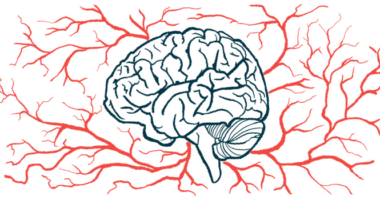Applications for AT-GAA Under Review in Europe

The European Medicines Agency has accepted applications from Amicus Therapeutics seeking approval of AT-GAA, a two-component investigational therapy for the treatment of Pompe disease.
“The acceptance of these filings is an important step forward for people living with Pompe disease and their families in Europe. Patients need new medicines as soon as possible,” John Crowley, chairman and CEO of Amicus, said in a press release.
Per the EMA’s usual protocol, the applications now will be assessed by the Committee for Medicinal Products for Human Use, which will issue an opinion before a final decision is made by the European Commission. Amicus did not specify when a decision on the applications is expected.
“We will work with great urgency with the EMA as they review the applications over the course of the coming months,” Crowley said. “With today’s announcement, we remain confident in the potential of this medicine to become the next standard of care in Pompe disease.”
AT-GAA is a two-part therapy containing cipaglucosidase alfa — an optimized version of the enzyme whose defect causes Pompe disease — and a molecule called miglustat that helps to stabilize the enzyme.
Amicus’ applications are supported by data from a Phase 1/2 clinical trial called ATB200-02 (NCT02675465), which showed that AT-GAA improved muscle strength and motor function, and lung function in adults with Pompe disease over two years of treatment.
The applications also are supported by findings from the Phase 3 PROPEL clinical trial (NCT03729362), which enrolled 123 adults with Pompe disease — making it the largest trial with a control group ever conducted in Pompe. Top-line results, announced earlier this year showed that a year of treatment with AT-GAA significantly improved physical and lung function.
Notably, most participants in the PROPEL trial were on the enzyme replacement therapy alglucosidase alfa (marketed as Myozyme in the European Union and as Lumizyme in the U.S.), and patients who switched to AT-GAA were especially likely to show improvements.
AT-GAA also is up for approval in the U.S. Decisions from the U.S. Food and Drug Administration (FDA) on each part of the two-component therapy are expected next year.
Amicus is sponsoring two open-label Phase 3 clinical trials of AT-GAA, both of which are currently enrolling children and adolescents up to age 17 who have Pompe disease.
The ZIP trial (NCT03911505) is enrolling participants with late-onset Pompe disease at locations in the U.S., Canada, Japan, and Taiwan.
The Rossella trial (NCT04808505), which is testing AT-GAA in children with classic infantile-onset Pompe disease, is recruiting participants at the University of Florida Clinical Research Center.






